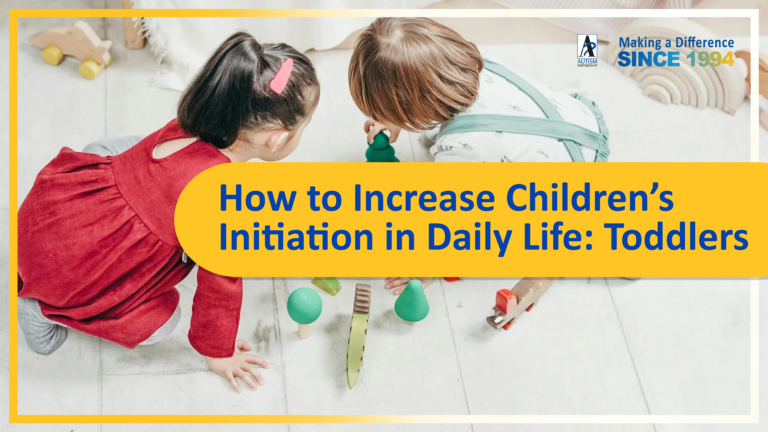
Attention deficit is a common problem found in children with autism. It is not uncommon that these children would not be able to complete tasks independently. Constant reminders are required from parents or teachers in order to make sure they sustain tasks or activities. For example, when a parent asks a child to change their […]
Children with autism have the potential to learn just like any child does. However, many children with autism are unable to begin their learning journey because of their lack of compliance, which is also known as non-compliance. Is it possible for your child to learn if they do not listen and follow instructions and just […]

My child doesn’t like to come to study. Sometimes, when it gets difficult, he will start stimming and do all sorts of things, and he doesn’t pay attention anymore. What can I do? – QUESTION FROM A PARENT DURING OUR ONLINE SEMINAR Q&A SESSION IN MAY 2020 Parents and caregivers of children with ASD often […]
Parents often talk to us about reading with their child being a difficult task. Sometimes the child may not stay with you while you read, or he/she may not answer your questions while reading. In the following, I will talk about some useful tips to make reading a successful and easy activity for parents to […]

One of the most important sources of learning motivation is reward. Rewards are not necessarily food or toys. It can also be games, activities, attention, escape, satisfaction, peer recognition, etc. Rewards can promote effective learning, but to use rewards effectively is not as easy as it says. It requires knowledges and skills, especially applying for […]

One common myth of ABA therapy is that ABA is a compliance training that turns children into passive learners. This deals with a misconception that in ABA therapy, children are not taught to be independent thinkers but merely trained to react to specific instructions. Same with any learning, no matter in ABA therapy, at school […]

In this article, we will continue sharing the remaining 7 rules of reinforcement with you. 9. Consistently follow the reinforcement schedule A predictable schedule of reinforcement is likely to increase the child’s chance of displaying the desired behavior (e.g., if the child gets the reinforced every time he displays the desired behavior, nice waiting, the […]
AP holds the belief that with quality ABA treatment using the Autism Partnership Method (APM), individuals with autism can reach their fullest potential and achieve the greatest degree of independence and highest quality of life possible.
![]()
All information received will always remain confidential. We will contact you as soon as we review your message. Thanks